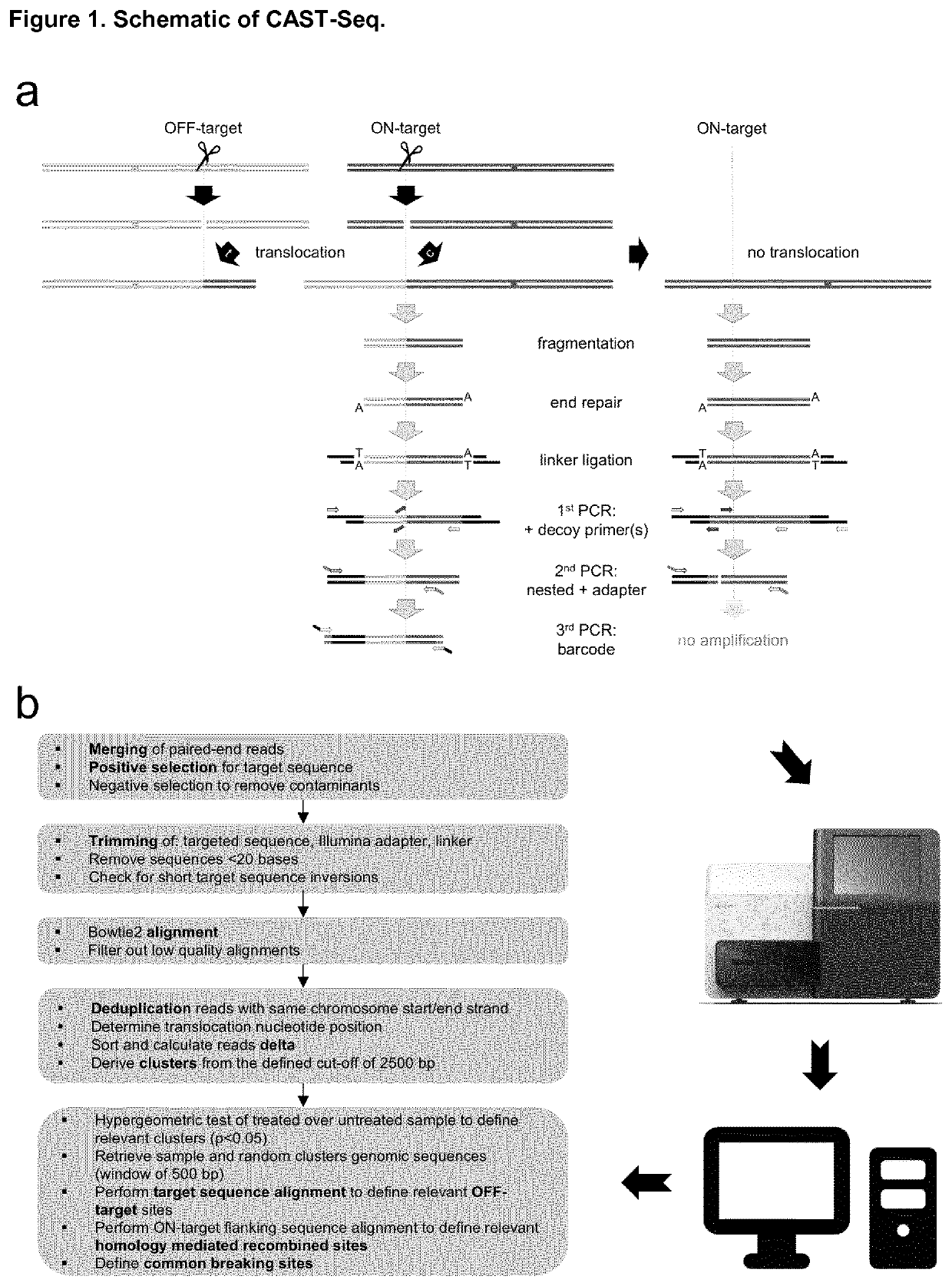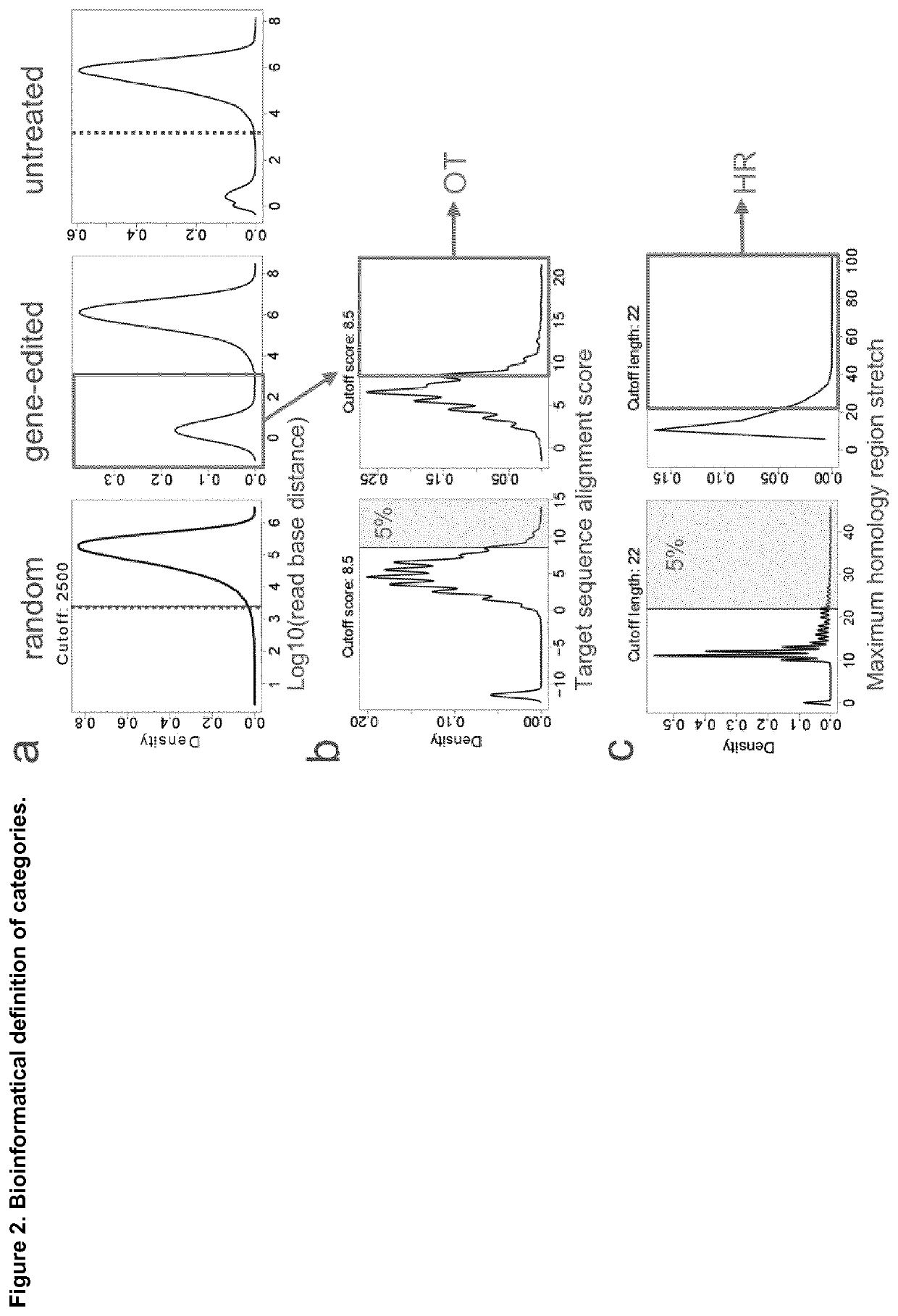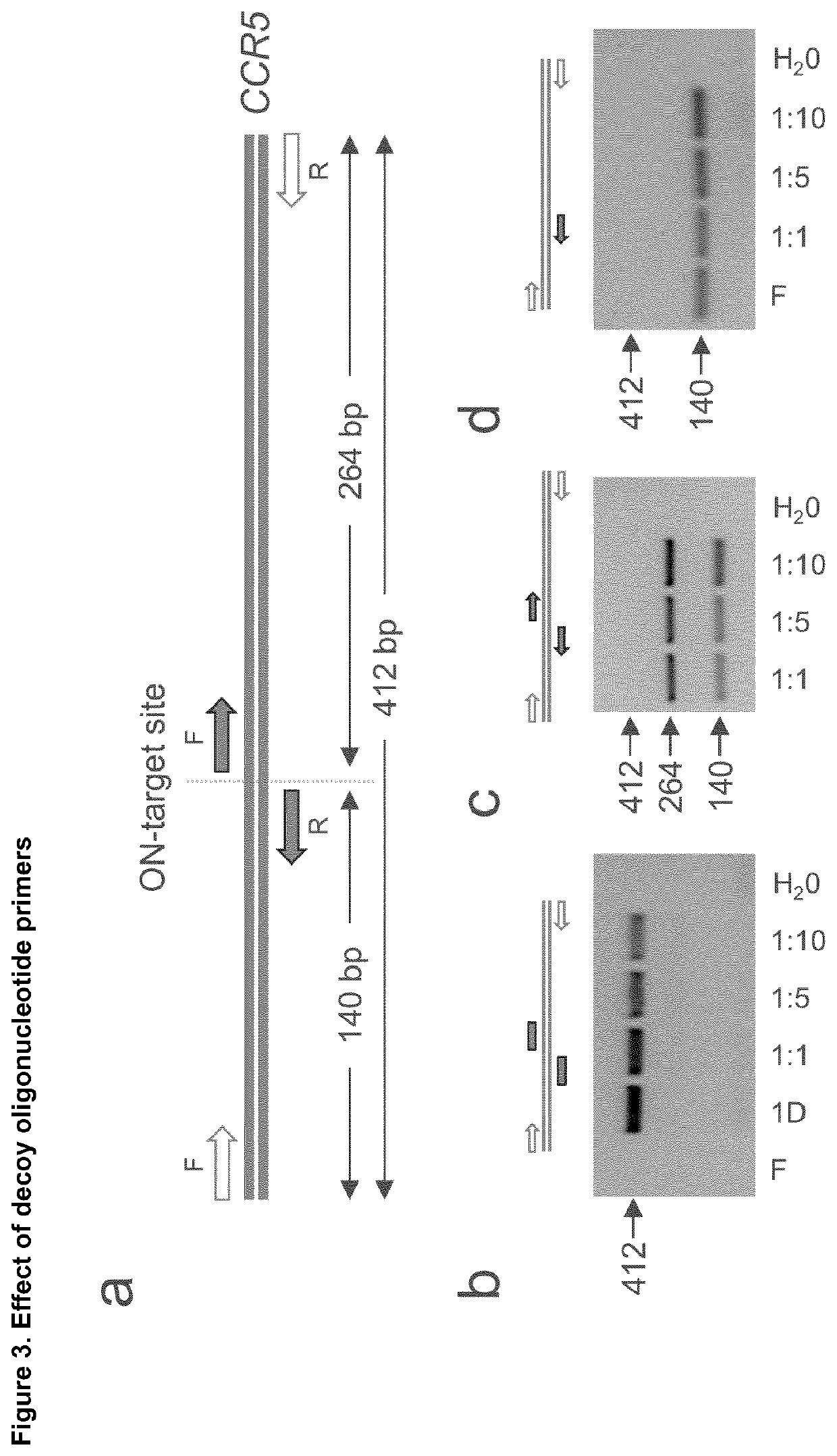Method for characterization of modifications caused by the use of designer nucleases
a technology of nuclease and modification, applied in the field of characterization of modifications caused by the use of designer nucleases, can solve the problems of unsatisfactory side effects, algorithm failure to identify critical off-target sites, laborious and expensive experimental methods,
- Summary
- Abstract
- Description
- Claims
- Application Information
AI Technical Summary
Benefits of technology
Problems solved by technology
Method used
Image
Examples
example 1
Library Preparation
[0119]Genomic DNA from untreated and genome edited hematopoietic cells is extracted with QIAmp DNA Blood Mini Kit (Qiagen) and subsequently fragmented by sonication (Covaris) or by an enzymatic reaction (NEBNext® Ultra™ II FS DNA Library Prep Kit, NEB) in order to obtain DNA fragments with an average size of about 350 bp (see FIG. 1a). The fragmented genomic DNA is subsequently end repaired and A-tailed (NEBNext® Ultra II End Repair / dA-Tailing Module kit, NEB). Linker DNA, generated by annealing of two asymmetric deoxyoligonucleotides bearing either a 3′-T overhang on the plus strand or a 5′-phospho group in combination with a 3′-C7-amino group on the minus strand, is then ligated to the sheared DNA and subsequently purified with QIAquick PCR Purification Kit (Qiagen). In the first PCR round, 500 ng of DNA are mixed with decoy oligos as well as a linker-specific and a target site-specific primer. PCR is performed using the following conditions: 20 cycles of 95° C....
example 2
atic Analysis
[0120]Paired-end reads from Illumina high-throughput sequencing were merged using FLASh (v1.2.11) (https: / / ccb.jhu.edu / software / FLASH / ) with 10 and 250 as minimum and maximum overlap, respectively. BBmap (version 38.22) (https: / / sourceforge.net / projects / bbmap / ) was used next to first apply a positive selection of reads that contain the designer nuclease target site in order to eliminate PCR mispriming products. Afterwards, the reads were trimmed in order to eliminate the linker sequences, the Illumina adapter sequences, and the targeted elongation sequence (FIG. 1b). A check for short targeted sequence inversion was performed at the end of the filtering procedure using BBmap. Parameters were settled as follow: kmer length for finding contaminants was defined according to the nuclease target site, linker or primer length. Up to 2 mismatches and / or bulges were allowed in the reference kmers. Parameters not mentioned here are set to default. The selected reads were then al...
example 3
ng Translocation Events
[0121]The translocation sites were divided into three categories: OFF-target (OT) activity derived translocations, homologous recombination (HR)-mediated translocations, and common breaking site (CBS)-derived translocations (FIG. 2). To allocate each site to one of these categories, we compared a 500-bp genomic region surrounding the translocation sites against 10,000 random sequences of 500-bp. Next, every single site derived from real or random sequences was aligned to the designer nuclease target sequence, with a score between 1 for match and −1 for mismatch, gap opening and gap extension (Table 10), and the best match from forward and reverse complement sequences was selected. Next, the longest common substring between each sequence, including left and right flanking regions, was searched in forward and reverse complement sequences within a 5 kb window. Each event was finally categorized as follows: OT, if the target sequence alignment score of the sequenc...
PUM
| Property | Measurement | Unit |
|---|---|---|
| area | aaaaa | aaaaa |
| size | aaaaa | aaaaa |
| signal-to-noise ratio | aaaaa | aaaaa |
Abstract
Description
Claims
Application Information
 Login to View More
Login to View More - R&D
- Intellectual Property
- Life Sciences
- Materials
- Tech Scout
- Unparalleled Data Quality
- Higher Quality Content
- 60% Fewer Hallucinations
Browse by: Latest US Patents, China's latest patents, Technical Efficacy Thesaurus, Application Domain, Technology Topic, Popular Technical Reports.
© 2025 PatSnap. All rights reserved.Legal|Privacy policy|Modern Slavery Act Transparency Statement|Sitemap|About US| Contact US: help@patsnap.com



